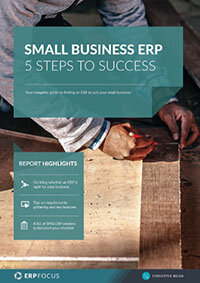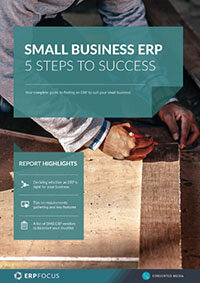ERP for Small Businesses: Hiring an IT Professional
If you run a small business, and feel like the time has come when you need to make an investment in a full time IT professional to monitor your ERP system, how do you find someone whose skills and talents meet your business needs? More importantly, how do you ensure that he or she can adapt to reflect the core values of the company you have painstakingly nursed from an idea to a healthy organism?
First, even though you can save a few thousand dollars on salary, do not hire someone just out of school. The fundamental problem with a recent college graduate is that no matter how strong their technical skills, they almost always have a naïve and unrealistic expectation of how business works. Look for an ERP professional with one to three years of experience as part of a larger IT operation in a medium to large firm. This will not only increase efficiency but will also make managing your ERP system much easier.
Request a candidate with experience with your ERP software. This may be more challenging; if someone has previously worked for a large IT department, they probably used a large ERP solution, not your small ERP solution. Still, list it as a requirement, and only settle for less if you have to. Peoples’ experiences take them on some pretty random paths.
Evaluate the intangibles
Do your best to evaluate the intangibles. Unless your candidate’s technical skills are so poor as to approach incompetence, they are the least important item on the checklist.
The most critical attribute for the successful ERP IT professional is the ability to listen effectively. “Listen effectively” in this case means more than simply remaining quiet. It conveys the ability to hear a convoluted, possibly illogical, half completed idea, and then to restate the core of the idea as a logical, coherent thought, and conclude with, “so is that what I just heard you say?”
Find the right ERP for your small business with this step-by-step guide
The second intangible is that the candidate puts the needs of the user ahead of technical elegance. Over the course of time, decisions will need to be made about whether to make changes to your ERP system; in other words, whether to make manufacturing’s job easier, or IT’s job easier. Unless security or reliability is at risk, manufacturing should always win that tradeoff.
Another important attribute is work ethic. This person has to be willing to make backups on the weekends, and to take middle of the night phone calls with a good humor when the system crashes. Anyone with a rigid eight-to-five mentality is not right for your company.
The last intangible is whether this person can collaborate. Is he or she the type of person you would enjoy working with? Would you seek out his or her counsel on a non-IT problem, just because you find their thought process logical, and reasoning sound?
A good IT ERP professional is worth their weight in gold to your future and your ERP team. A bad IT ERP professional will put a drag on your growth, on your staff’s attitudes, and on your ability to service customers the way you want. Be patient – and relentless- about finding a good one.
Free white paper

Small business ERP: five steps to success

Related articles
-

ERP training, and how to train the trainer
Internal or external training - what would be best for your business?
-

Secret KPI: Why Your ERP Implementation Team Matters More Than Software
Learn how Godlan ensures successful ERP implementation for manufacturers with proven strategies &...
-

Four qualities to look for in a good ERP superuser
Use these criteria to pick the best ERP superusers for your workforce

